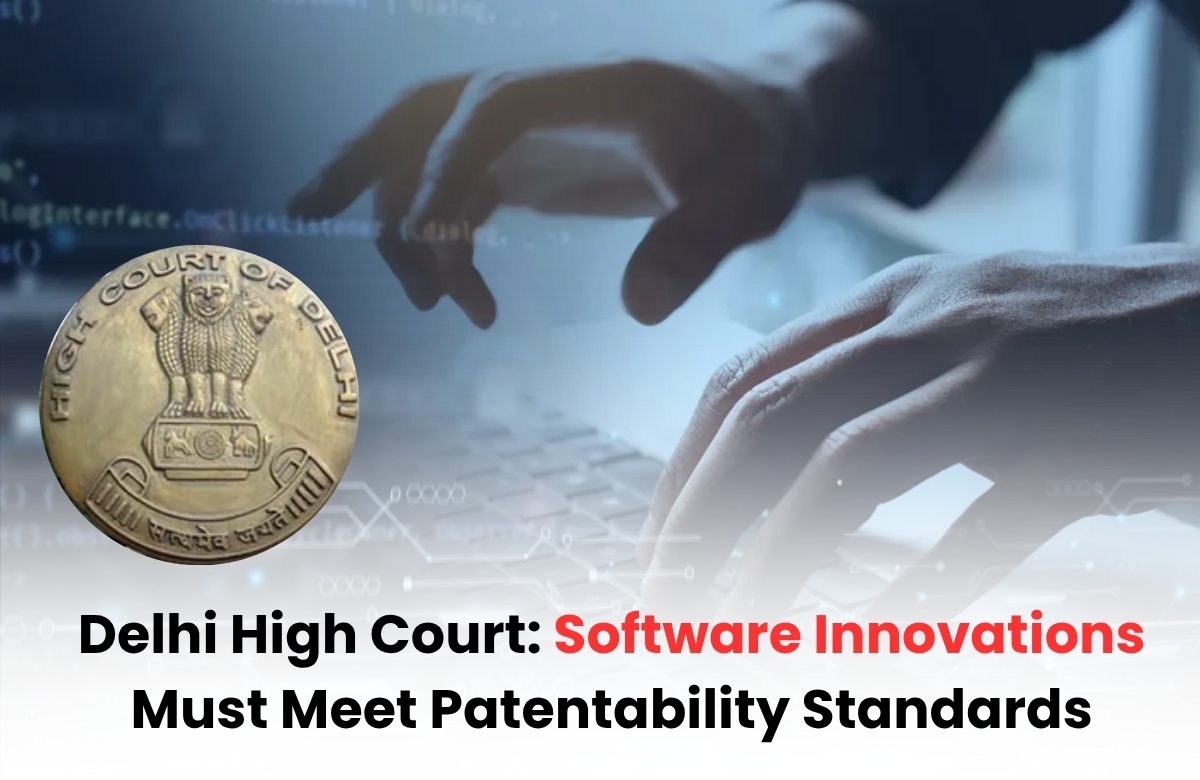
In a landmark decision, the Delhi HC rejects Kroll’s software patent and has ruled that software-based inventions without a technical effect or hardware advancement are not patentable under Indian law. This case is a perfect example of the strict and independent nature of Indian Intellectual Property Rights (IPR) law.
What Led to the Case: The Story Behind Kroll’s Patent Battle in India
The roots of this case trace back to 2007, when a U.S.-based cybersecurity firm, Kroll Information Assurance LLC, filed a patent application in India for a technology it had originally developed in the United States. The invention was designed to locate individuals on peer-to-peer (P2P) networks by analyzing user activity and search behavior—an approach aimed at enhancing online surveillance and cybersecurity.
Kroll had already secured patents for this technology in several countries, including the United States, Canada, Japan, and Australia. However, when the application was examined in India, the Controller of Patents rejected it, stating that the invention amounted to nothing more than an algorithm and a computer program, which cannot be patented under Indian law. After this rejection, Kroll went to the Delhi High court.
Read Also:-Experts Warn UK–India Trade Deal May Threaten Medicine Access
What Was the Invention in the Kroll Patent Case?
The name of the invention is “A System, Method, and Apparatus to Locate at Least One Type of Person via a Peer-to-Peer Network.” Peer-to-peer (P2P) networks are platforms where users share files directly with one another, like music, videos, or documents, without going through a central server. Examples include BitTorrent or older tools like LimeWire.
Kroll’s system works by watching what people search for and share on peer-to-peer (P2P) networks. It looks at keywords users type in and the files they exchange, then finds patterns that match certain behaviors, like someone searching for illegal content. Based on this, it builds a profile of the user and tries to identify or locate them. All the information it collects is stored for later analysis, which can help in tracking suspicious activity.
Kroll’s invention aimed to solve this problem by developing a system capable of monitoring what users search for and share on peer-to-peer (P2P) networks. It would analyze this activity to recognize patterns of suspicious behavior and, based on that, help identify or track down specific users involved in potentially harmful or illegal actions. The goal was to assist law enforcement, cybersecurity agencies, or companies in detecting misuse and taking appropriate action, even within networks where users typically remain anonymous.
Why the Patent Application Was Rejected by the Controller
- Violate the law
Under Section 3(k) of the Indian Patents Act. This is not allowed to give a patent to any software.
- No Technical Effect or Hardware Improvement
The invention did not produce any technical effect or improve the functioning of hardware, which is required for software-related inventions to be patentable in India.
- Purely Software-Based
The system was entirely based on software logic, without any hardware-specific implementation or enhancement.
Why the Delhi High Court Rejected Kroll’s Patent Application
The Delhi High Court rejected the application on the grounds that the invention was purely software-based, lacked any technical depth, and therefore did not qualify as patentable subject matter under Indian law—a view that aligned closely with the stance taken earlier by the Controller of Patents. The Court also dismissed Kroll’s argument that the invention had already been granted patents in other jurisdictions such as the United States, Canada, Japan, and Australia. It reaffirmed that India follows its own independent legal framework, which applies stricter standards to software-related inventions, and that foreign patent grants have no influence on domestic decisions.
Conclusion
This case shows that the Indian laws are independent and do not get influenced by any external pressure. Regardless of international recognition, inventions based purely on algorithms or computer programs without technical effect remain non-patentable under Indian law.
Read Also:-Bombay High Court Upholds KPL’s Rights Over ‘Kirloskar’ Trademark
